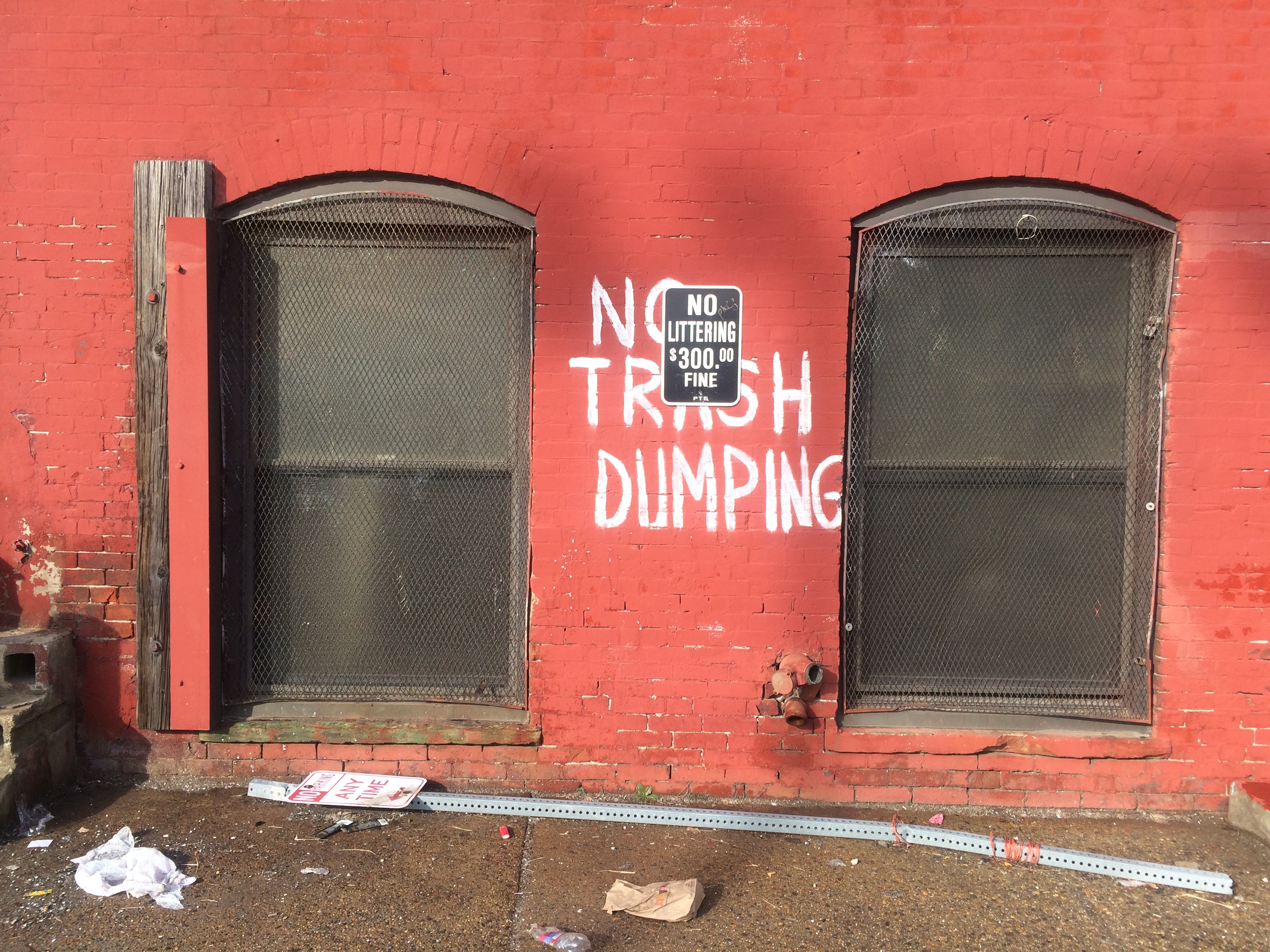Would requiring waste management plans curb illegal dumping?

On Monday, City Council’s Committee on Licenses & Inspections will consider a bill that would require any building project over $10,000 to submit a detailed waste collection plan to the city.
Introduced in September of last year on behalf of Council President Darrell Clarke, the bill reappeared on the legislative calendar a couple weeks ago.
The development community’s response to the bill is decidedly mixed. While the industry agrees that illegal dumping is a huge problem, they don’t seem convinced that the proposed legislation will curb bad actors.
The bill states that any project where the estimated cost of construction, demolition, or alteration is above $10,000 will require the submittal of a detailed waste collection plan within ten business days of the building permit application’s submission.
Collection plans must include trash management goals, the expected waste materials generated by the project, the expected handling procedures, and the name of every removal company hired for the project. The plan must be distributed to every subcontractor working on the project. If these regulations aren’t followed, the city may revoke the building permit.
Asked to comment on the bill, the Building Industry Association’s Jon Thomas said that the general intent of the bill is laudable but that he feared it wouldn’t have the intended effect.
“Being able to track and source illegal dumping is a good thing, but does this bill accomplish that,” asked Thomas. “If the point of the bill is to deter illegal dumping, well, it’s illegal already so those [bad actors] would still ignore it. It just creates another obstacle for those following the rules.”
Thomas also feared that the additional hurdle would lead more small contractors and developers to simply skip the building permit process altogether.
The bill is the result of Council President Clarke’s longstanding concerns about illegal dumping around construction sites. In an interview with ABC 6 from last spring, Clarke highlighted the North Philadelphia neighborhoods around Temple University as a prime target for these lawbreakers.
His office didn’t respond to PlanPhilly’s request for comment on the bill this week, except to say that Clarke has been working on the issue for a long time.
Both Thomas and David Feldman of the trade group Development Workshop expressed concerns about the $10,000 trigger and hoped that it could be subject to negotiation.
“If it kicks in for any project over $10,000 that means if grandma wants a new bathroom she needs to submit a detailed waste management plan,” said Feldman.
PlanPhilly reached out to several other developers for their take on the legislation as well.
“This new requirement seems pretty burdensome,” wrote Ken Weinstein of Philly Office Retail. “I would rather see more enforcement against short dumping than adding burdens to developers who properly dispose of their waste and keep their development sites clean and neat.”
The most sanguine take on the legislation came from Ori Feibush of OCF Realty.
“There is significant room to streamline the process so that the bill doesn’t delay those who are already following the law,” wrote Feibush. “But the bill does have the potential to do good. There are countless bad operators in the City and a recorded approach to job site cleaning and waste management is a good thing.”
The hearing before the Committee on Licenses and Inspections will be held at 10:30 on Monday April 17.
WHYY is your source for fact-based, in-depth journalism and information. As a nonprofit organization, we rely on financial support from readers like you. Please give today.




